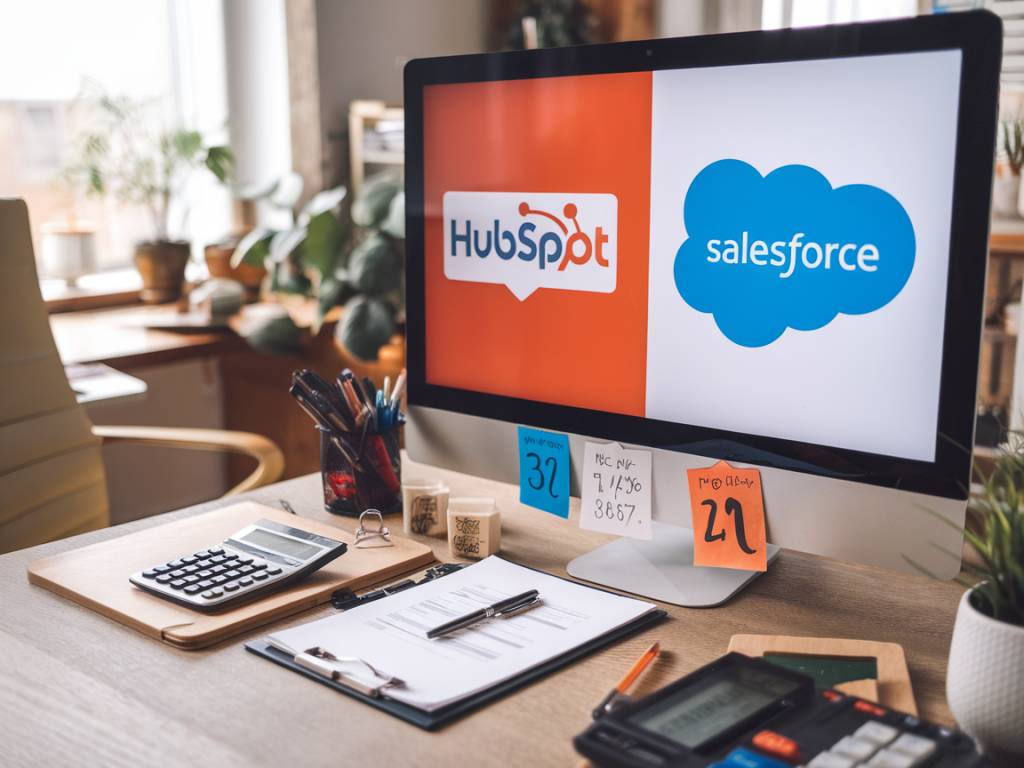When it comes to selecting the right CRM (Customer Relationship Management) platform, two giants often dominate the conversation: HubSpot and Salesforce. Both are powerhouse platforms designed to help businesses streamline operations, improve customer relationships, and drive revenue growth. But which one is the best fit for your business? In this article, we’ll dive deep into the features, pricing, usability, and scalability of both CRMs, so you can make an informed decision.
Understanding HubSpot CRM
HubSpot CRM is known for its intuitive interface and its “freemium” model, making it an attractive choice for small to mid-sized businesses. HubSpot’s real claim to fame is its all-in-one marketing, sales, and customer service ecosystem, which integrates seamlessly with its CRM. From managing leads to nurturing customer relationships, HubSpot makes it easy—even for teams with little or no CRM experience.
One standout feature of HubSpot CRM is its clean, well-designed dashboard. It provides an at-a-glance view of your entire sales funnel, giving you the power to track deals, individual performance metrics, and pipeline growth effortlessly. Plus, if you’re already using HubSpot’s marketing tools, everything syncs perfectly, allowing your marketing and sales teams to collaborate seamlessly.
So, what’s the catch? While basic functionality is free, advanced tools such as deeper analytics or custom reporting require upgrading to a paid plan. Yet, for businesses embarking on their CRM journey, HubSpot’s free version is hard to beat.
Diving into Salesforce
Salesforce is the OG of CRMs and a leader in catering to larger enterprises. Known for its extensive customizability, Salesforce allows businesses to build a CRM that is tailored exactly to their needs. Whether you’re looking for advanced reporting, AI-powered insights, or complex automation workflows, Salesforce has you covered.
A key feature of Salesforce is its AppExchange marketplace, where you can find thousands of apps and integrations to extend the platform’s functionality. Need a tool to manage inventory? Done. Looking to integrate with an unconventional third-party app? There’s probably already a connector for it.
That said, Salesforce’s complexity can often feel overwhelming for smaller teams or businesses without a dedicated IT department. Additionally, its pricing structure leans toward the higher end, making it less ideal for startups or smaller companies operating on tighter budgets.
HubSpot CRM vs Salesforce: Key Considerations
Now that we’ve broken down the basics, let’s compare HubSpot CRM and Salesforce on some key decision-driving factors:
Ease of Use
HubSpot wins hands down when it comes to ease of use. The platform is intuitive and caters to teams that want to get started quickly without any technical hiccups. On the other hand, Salesforce’s deep customizability comes with a steeper learning curve. If you’re a business with limited technical resources, Salesforce might feel intimidating at first.
Pricing
Pricing may be one of the biggest deciding factors. HubSpot’s free plan is perfect for small businesses that need a no-cost, entry-level CRM. Its paid plans scale reasonably as you grow. Salesforce, while offering unparalleled power and flexibility, comes with higher costs that may not be feasible for businesses with limited budgets. Consider both the upfront investment and long-term scalability when making your decision.
Customization
This is where Salesforce shines. No other CRM allows for this level of customization, from workflows to reporting to integrations. If your business needs a highly tailored CRM solution, Salesforce has almost no equal. HubSpot, while customizable to some extent, focuses more on ease of use and out-of-the-box functionality.
Integrations
Both platforms offer robust integrations. HubSpot integrates seamlessly with its own suite of tools and other third-party apps, like Microsoft 365, Google Workspace, and Slack. Salesforce’s AppExchange, however, offers an even wider range of integrations, making it the better choice for businesses with unique or complex requirements.
Support
Both HubSpot and Salesforce offer customer support, but the levels differ based on your pricing plan. HubSpot provides email and chat support for free plans, with premium support options available for paid plans. Salesforce has extensive support options, including 24/7 customer service for those on higher-tier plans. Keep in mind that higher levels of support often come at a premium for both platforms.
Real-World Scenarios: Who Should Choose What?
Let’s put all of this into perspective with a few examples:
- If you’re a startup just getting off the ground, HubSpot’s free CRM might be all you need to build your sales pipeline and manage leads. Plus, its ease of use means less training time for your small team.
- If you’re a mid-sized company expanding your outreach and needing strong marketing and sales alignment, HubSpot’s paid plans will give you the tools to grow without overwhelming your team.
- If you’re a large enterprise managing complex sales processes and requiring deep customization, Salesforce is your go-to. Its robust features give you unmatched control, even if it means a steeper learning curve and higher costs.
Asking the Big Question: What Does Your Business Need?
At the end of the day, the choice between HubSpot and Salesforce boils down to your unique business needs. Are you looking for ease of use, rapid onboarding, and solid marketing-sales integration? HubSpot is calling your name. Do you need a powerhouse platform that can scale and be tailored to fit your exacting specifications? Salesforce might just be the answer.
Still not sure? Make use of free trials offered by both platforms. Dip your toes in, test the waters, and see which CRM aligns better with your company’s workflows. As with any business tool, the best CRM is the one that drives results and propels your team toward success.
